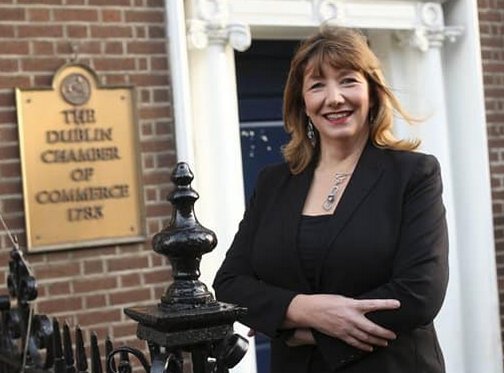Forty-two percent of young women aged between 13 and 22 believe gender discrimination will hold them back in their future careers. However, they claim that the rise of female leaders such as Theresa May and Hilary Clinton could help to change sexist attitudes and encourage workplace diversity, according to a new YouGov survey commissioned by the Royal Institution of Chartered Surveyors (RICS).
Whilst almost half of young women believed that their gender would count against them in the workplace, young men seem to have an opposing attitude with 24% saying that they expect to earn more in their careers than their female counterparts.
But there may be hope on the horizon in the form of Theresa May and Nicola Sturgeon - 40% of young women believe that having a female Prime Minister or President will encourage gender diversity at work. Of those surveyed 77% believe that the attitudes and behaviour of CEOs and senior leaders are important in encouraging equal numbers of men and women.
The property and construction industries were perceived by respondents to be among the least diverse with 34% of girls saying that the sector was purely for men. In response, RICS CEO, Sean Tompkins has taken a pledge to drive gender equality in this sector and avoid speaking on panels that are not diverse or representative.
RICS Chief Executive Officer, Sean Tompkins said:
“This survey reveals that the construction and property industries are still suffering from a reputational image crisis. We need to do more to encourage young women into these key sectors and smash the clear perception of a glass ceiling. Quite frankly, we need more radical action.
“This country is suffering from a crippling skills shortage in these sectors. We need to encourage young people to enter the sector, and we need to show them that we are as diverse as the clients we work with. A quarter of young women said that when thinking about a company they would work for, employing a diverse range of people was the most important factor.
“So I have listened, and I am taking action. From now on, as the CEO of this global organisation, I pledge that both RICS and I will lead the way on diverse panels and I will question any panel I am invited on to that is male-only. We need to showcase the expertise of women in our industry. I urge other industry leaders to stand up and follow suit. That’s why I’m issuing the CEO challenge, calling on fellow business leaders to take the pledge and by doing so enhance diversity in the Built Environment across the UK".
Adelle Rhule-Martin, a 20-year-old, Surveying Apprentice from Bilfinger GVA, Birmingham said:
“Being able to see women like Theresa May or Hilary Clinton actively pursuing careers, where men once dominated makes you think - if they managed to achieve that, then I can maybe achieve that and more! Because of these powerful female role models, I believe things will change in the coming years.
“But business leaders must also play their part, and that needs to come from the top. The CEO sets the vision for the company. The CEO is a driver and the business is their vehicle. The drive to increase diversity and stand up for women in any industry, has to flow from the top down to ensure that all levels support and implement diversity best practice.”
Among the industries perceived as most diverse are retail, and health, with law and construction cited as the least.
RICS President Amanda Clack, also Head of Infrastructure (Advisory) at EY for the UK & Ireland, said:
“Speaking as a woman in construction, I can say with confidence that this is not just a job for boys. However, the need for diversity at the very top is clear. As now the President of RICS, and someone who happens to be female, I reflect back on when I first entered the profession, there were no strong female role models. Yet, according to our survey, a quarter of young women believe they will do better under the leadership of a female CEO and they want to see visible female role models.
“Strong female roles models will help to attract greater diversity into the industry, because the more we celebrate individual success, the more surmountable barriers become.
“With a female Prime Minister in the UK and a woman in the running for the US Presidency, we are seeing great female role models at the very highest level – with the potential impact that can have on workplace diversity apparent.”
To tackle the diversity issues faced in its own sector and to set an example to others, the RICS has invested in creating the RICS Diversity Hub, an online portal designed to encourage knowledge sharing and provide practical advice to members and external bodies on how best to embed diversity and inclusion principles in their workplace. In addition, the Hub will encourage members to sign up to the RICS Inclusive Employer Quality Mark (IEQM). This scheme aims to make the land, property and construction sector more inclusive and diverse, giving those who sign up a competitive advantage.
















